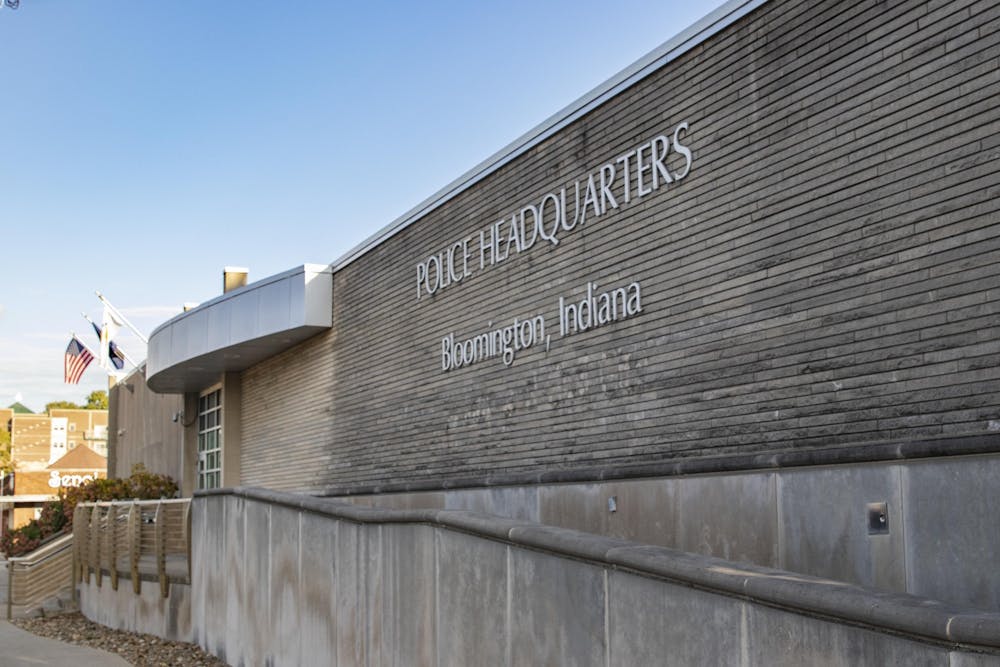Bloomington’s new Community Advisory on Public Safety Commission is open for applications to fill 11 vacant positions, the City of Bloomington’s Clerk’s Office announced Dec. 30.
The commission will research “evidence-based alternatives to traditional policing” and identify public safety practices used in other U.S. cities as well as internationally. It will also evaluate if the practices found would work in Bloomington, according to the legislation that established the commission.
The initial draft of the proposal was written by local residents Cathi Crabtree and Molly Stewart, according to the legislation information packet. The ordinance was passed by the Bloomington City Council on Nov. 18 and approved by Mayor John Hamilton on Nov. 25.
Related: [Board of Public Safety discusses Bloomington Police Department’s strengths, weaknesses]
These alternatives to traditional policing include establishing an alternate crisis response phone number, investments in mental health care, addiction treatment, community centers and job training and “all other innovative approaches,” according to the ordinance.
The commission will be made up of 11 members appointed by the Bloomington City Council, according to the ordinance. Citizen appointees must be at least 18 years old and live in Bloomington.
The commission is looking for people who have had experiences as disadvantaged members of society, City Council Member Isabel Piedmont-Smith said.
“Some of those categories certainly could apply to college students,” she said.
Individuals from underrepresented groups are encouraged to apply, according to the release. These groups include, but are not limited to people of color, LGBTQ, people experiencing mental health challenges or physical disabilities, people with a record of previous incarceration and people experiencing homelessness, drug addiction or domestic violence.
Piedmont-Smith, one of the three council members who authored the legislation, said it was important the legislation’s sponsors do not micromanage the commission.
“We would like them to kind of decide the best way to proceed themselves,” she said.
The commission also hopes to facilitate community conversations on public safety and create education and outreach programs.
At most, the commission will meet once a month or, at minimum, meet four times a year, according to the ordinance.
The commission will focus on the City of Bloomington and not the greater Monroe County, according to the legislation information packet.
During heightened tensions last summer, council members received hundreds of emails about defunding the police, Piedmont-Smith said.
The ordinance also acknowledged the shortcomings of local and national policing on issues such as mental health and community outreach.
“The police, who are trained in law enforcement, are not the most appropriate organization to address issues that require social supports and interventions (for example, mental health crises, substance misuse, homelessness),” according to the legislation information packet.
A petition from 152 residents on policing and public safety sent to the city council also advocated for a group similar to the commission, according to the legislation information packet.
The commission will research and collect data on the opinions of community members on public safety, focusing on data from members who are a part of minorities and other often marginalized groups.
Piedmont-Smith said some data gathering will be done in person, but according to the ordinance, the commission may gather data through law enforcement.
“The CAPS Commission might use emergency dispatch data or data from various law enforcement organizations as it gathers information,” the legislation information packet said.
Until public safety data has been completely collected, it is unclear if the commission will work with law enforcement organizations further, according to the legislation information packet. How the commission could impact these organizations is also unclear until collection is complete.
The commission will make recommendations to improve public safety to the Bloomington City Council, Board of Public Safety and the mayor or mayor’s designee, according to the ordinance. It will also provide an annual report to the city council, mayor and the public.
Though the commission is advisory in nature, Piedmont-Smith hopes its decisions will carry weight.
“The city council does take seriously the recommendations of our boards and commissions,” she said. “And I would hope that the recommendations of this particular commission — since it brings in voices we don't normally hear — I would hope that this would be taken very seriously by the city council and by the mayor's administration.”
The ordinance said the commission will be reviewed in two years after its first meeting to see if it is still effective, but Piedmont-Smith said she is optimistic about the commission’s future.
“I think the need to have underrepresented demographics advise us on public safety measures is a need that will continue for a long time,” she said.
The City of Bloomington encouraged the commission to work with community volunteers who would support research, data analysis, report writing, public outreach and other needs, according to the legislation information packet. The commission would direct this volunteer work.




